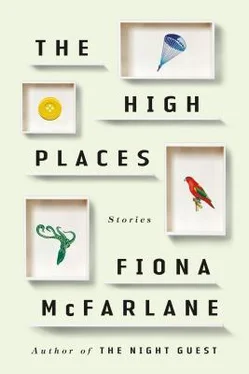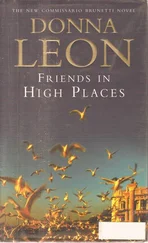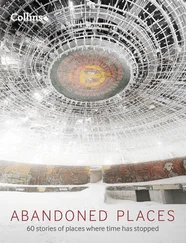‘Geology,’ he says, ‘disproves you.’
‘I know,’ I tell him. ‘It’s a joke.’
I live in an astronomical observation station owned and, until recently, forgotten by the New Zealand government. It’s partway up the mountain, and I can walk down to the sea in thirteen minutes. Paths have been cut into the rock, as if this were a holiday beach frequented by sure-footed children, but it’s still a relief to step out onto the sand from the mountain path, to see the sea spread wide and to my left the smaller inlet that is Mabel’s temporary home. The clear water is deeper than it looks from above. When I say the water in Mabel’s bay is clear, I don’t mean it’s transparent, but that it’s see-throughable, and Mabel is see-able there at the bottom. I feed her fish thawed from a deep freeze, or freshly caught if I’m in the mood, and these she grasps at the end of her tentacles and rolls up toward her beaked mouth. The coral sand is sharp and clean and my feet never feel dirty. When Darwin accompanies me (which he usually does on those days I’m feeling my worst), he only removes his shoes to wade into the shallows, and then his feet are the delicate brown and blue and yellow of Galápagos finches.
The view of Mabel from the shore is more intimate than the bird’s-eye view from my station fifteen metres above. It’s impossible to take in her vastness or the pattern of her tentacles and arms, so it’s her eyes that fascinate me. They interest Darwin as well. They’re hard to avoid. Mabel has the largest eye in creation, and it looks like ours, although its structure is entirely different. This humanoid appearance far out on the lone branch of invertebrate evolution gave scientists pause, at one time; they paused over Darwin and his theory of natural selection. The eye of the squid once gave my friend a great deal of trouble. Now he and I stand on the shore and consider the vertebrate appearance of Mabel’s canny eye. It looks so very God-given. Difficult to assume that such an eye doesn’t think, or ponder, or dream.
I think about squid too much, Darwin cautions me.
‘A squid is not a human,’ he says.
‘A human is just another animal,’ I say.
‘Oh, no,’ says Darwin. ‘The highest of the animals.’
‘Careful,’ I tell him.
We argue about this — the concept of progress, the tricky politics of supposing one thing higher than another. He’s impatient with the twentieth century on this point. He doesn’t seem to have noticed the twenty-first has begun, and I don’t tell him. I do tell him that whenever I spend an extended length of time with Mabel, peering into her large eye from the rocks on the shore, I find myself shaking off the feeling that there’s a person inside her, watching me. Darwin mocks this as sentimental. He says this sensation is so typical as to be ‘fatally unfresh’. I suppose my desire to free Mabel is similarly unfresh. But there are no fresh desires.
Today I feel very well. I feel an immense good health. Today I feel with great certainty my precise location upon the earth, the latitude and longitude, the position of the sun. This is important, because today we free Mabel. The date is September 23rd, but that’s elsewhere. Here on this island we’ve dropped out of time, although once, I believe, the island was within time: when it was first created, it was a definite volcanic event. Then the rock subsided, the sea settled, the coral multiplied, and the powerful boats of the islanders came. Whalers and traders, adventurers, missionaries, and gentleman naturalists endlessly agog at the taxonomic world. Mabel’s arrival might qualify as an occasion, a specific point on a timeline, except that the strangest of sea creatures must come butting up against this place in secret, yesterday and today and tomorrow, and usually there’s no one here to care or notice. No, the real things of the world take place elsewhere. And yet today will be an eventful day, and yesterday was too. So these are the end times.
Yesterday I visited the Catholic school. I have an arrangement with the school: I go there once a month and am driven into town by the school’s driver. We travel in a primordial jeep. In town, I pick up the supplies shipped in by my research group and send my month’s data home; then we drive back to the school. It’s a suitable arrangement for everyone, worked out in the distant days in which I was apparently capable of dreaming up such things: the school, which seems to exist in a state of immaculate fundlessness, gets some of my grant money, and I don’t have to go to the trouble of maintaining a vehicle. I order in treats for the schoolgirls: lollies and biscuits, novelty erasers, books. These I pass on to the head of the school, Father Anthony, who always wants me to come to his office for a chat; I always refuse him. Every month I anticipate these trips with an obscure dread.
For the past few months, Father Anthony has been inviting me to address his students on the subject of marine life. I declined at first. It felt false to arrive at the school and pose as an expert when a) I no longer believe in God, and b) to this date my most significant contribution to the science of the squid is the observation that male colossal squid probably do have a penis. I discussed my qualms with Darwin and he rejected them immediately. First of all, he said, I am a scientist, and these priests and nuns and children are not. They don’t know how many papers I haven’t had in Nature . Second, I’ve been invited to speak on marine, not heavenly, life, so my lack of faith shouldn’t interfere. And third, I have a problem that I need help with: namely, freeing Mabel. It was Darwin’s suggestion that the school may be able to provide this help. He has a tactical mind.
I delivered my talk yesterday, after my usual visit to town in the jeep. The driver of the jeep, Eric, is a sinewy man of tremendous energy. I understand that he does various kinds of physical work for the school: gardening and maintenance as well as driving. When he talks, which is rarely, it’s mostly about the branch of his family who moved to America long ago and are thriving there as if having discovered a taproot from which they were once dramatically severed. Eric speaks of America with an ancient nostalgia, but refuses to go because he was born on this island and his elderly father lives here. His energy is badly placed behind the wheel of a car. He sits in tense near-sightedness, coiled, attentive, as if he’s offended by the stillness required in order to travel so far so quickly. The roads are covered at all times in blotchy fruits that, when crushed, spill out slippery seeds. Apparently, the animal that would once have eaten them — a large bird with a frighteningly hooked claw — is so near extinction it now trembles with evolutionary neurosis in the quietest corners of the forest, eating less perilous fruits. These are the roads we take — viscous, birdless — into town. Town: one store and five drinking establishments. When the supply ship docks, the entire place seems to double in size. I like arriving with Eric. He knows everyone, and with him I’m greeted like a brother. Without him I appear to go unnoticed, which I know is not the case.
Yesterday, everything was quite normal — my crates were stacked on the dock, already clear of ‘Customs’ — except for the presence of five white women, all young and dressed in T-shirts and baseball caps. They sat together on benches by the dock, fanning themselves with the necks of their shirts and glowing with satisfaction at their evident discomfort. The girls rested their heads on each other’s shoulders and took self-portraits with their mobile phones, and no one paid them any attention. They looked to have been sitting there for some time.
‘Who are they?’ I asked Eric.
Читать дальше












